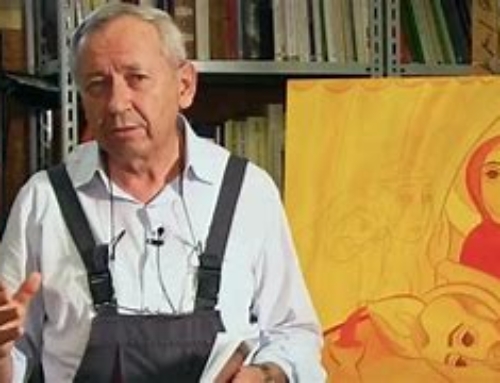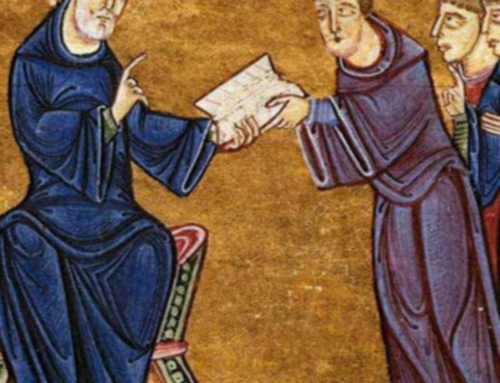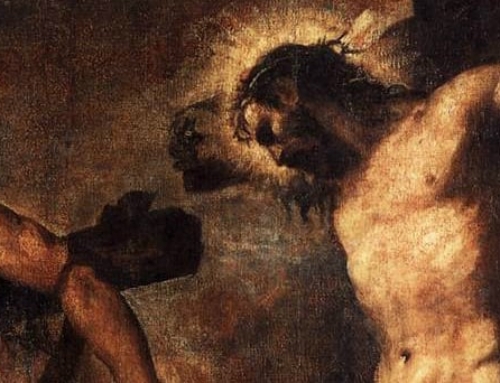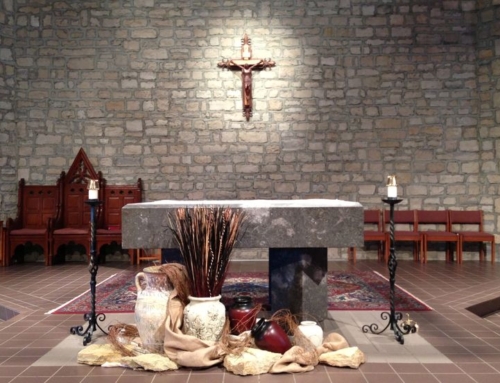When faced with controversial subjects one often hears someone spout the bromide, “Well, we must hate the sin but love the sinner.”
While this sounds like an easy and pleasant solution, when we press it, it proves problematic. First of all, we need to think about the final judgement. When it comes down to that grim reality God does not actually separate the sinner from his actions. The sinner goes to hell–not his actions. To be sure, God’s love for the sinner is boundless, but he does not separate the sin from the sinner. Can we? More importantly–do we?
You see, it’s all well and good to “hate the sin and love the sinner” when the sinner is a nice guy like us and we don’t really think his sin is so bad anyway. So, for example, it seems a pleasant thing these days to “Hate the sin but love the sinner” when the sin is fornication and the sinners are our nice niece and her boyfriend who are cohabiting. It is easy enough when the sin is sodomy and the sinners are Ronny and Randy–the “really nice guys” who have moved into the subdivision and serve on the HOA and decorate their home real nice at Christmas like everyone else. It’s easy enough to “hate the sin but love the sinner” when the sinner is the adulterer George who works in accounting and belongs to the country club and is always good for a round of drinks.
But do you love Adolf Hitler? Stalin or Dr Mengele, Idi Amin? Do you hate the fact that Jeffrey Dahmer or John Wayne Gacy abducted, tortured, raped and murdered boys and young men but you love Jeffrey and J. W Gacy? I don’t think so. No. People like that rightly inspire genuine fear and loathing. We see pictures of these depraved (and probably demon possessed). monsters and we do not love them. At this point the cute little saying, “Hate the sin but love the sinner” kind of breaks down doesn’t it?
So what’s the answer? Do we follow the logic and conclude that we must love the sinner and the sin? This is, in effect, the point the LGBTQ+ activists are making. They say (quite understandably) “Why do you Christians say you love and accept us, but you continue to reject the way we love our partners?” They argue, “How can you say you love me when you reject who I really am? Because I really am gay and I really do love people of my own sex, but you say I am not allowed to do that and I must be straight and marry a person of the other sex or else be celibate for my whole life.or you won’t really accept and love me.”
They have a point.
So do we take the other option? That is “Hate the sin. Hate the sinner”?
Probably not.
Instead we have to see things from the eternal perspective if we can. God loves each and every one of us, he loves as he created us and he loves what we could be. In other words, he sees our created goodness and the greater possible perfection of our redeemed and sanctified state, but he hates how sin has soiled us, spoiled us and made us strange. He hates how his good creation has been twisted and deformed by sin. He hates and loathes what we have become not because he hates us but because he loves us.
Imagine a mother who has brought a beautiful boy into the world, and that beautiful, bright and winsome child grows up to become a fat, lazy, lustful drug addict–living in his mother’s basement watching porn and playing violent video games all day. The mother does not loathe her son. She loves him, but she hates what he has become, and although she loves him and has put up with him and done everything for him that she possibly can–still he chooses to descend into the dark. She hates that.
Eventually she throws him out of the house. Is she wrong to do so? Does this mean she no longer loves him? No. She loves him more than ever, but she also loathes him–loathes what he has become BECAUSE she loves him so much.
I have to confess that I am drawn into this terrible dilemma sometimes as a pastor. Someone will come to talk with me about their problems and they have given themselves over to sin at a very deep level and as they tell their story I am repulsed by them. They may well put on a pleasant, polite exterior, but that only makes them more loathsome in my eyes.
So at that point I pray for help. I realize that I am finding it hard to love this person. I do not, at that point, “hate the sin but love the sinner” In fact I am loathing the sinner not loving the sinner. So I ask for divine assistance to see the wounded child beneath the respectable appearance and beneath the deformations caused by sin. I ask for the grace to love the sinner (who I am inclined to loathe) while at the same time recognizing that I am right to loathe what that person has become.
Finally, I ask for the grace to see another person in the same way. There is another person deformed by sin who I often find loathsome. I need to see that person also as God sees him: a dear child too often enslaved by sin but redeemed by love.
That other person is the man who looks at me from the mirror.







Thank you for this practical application of living the Gospel. Its so based in real life it helps enormously. Keep on speaking the truth Father, we need you.